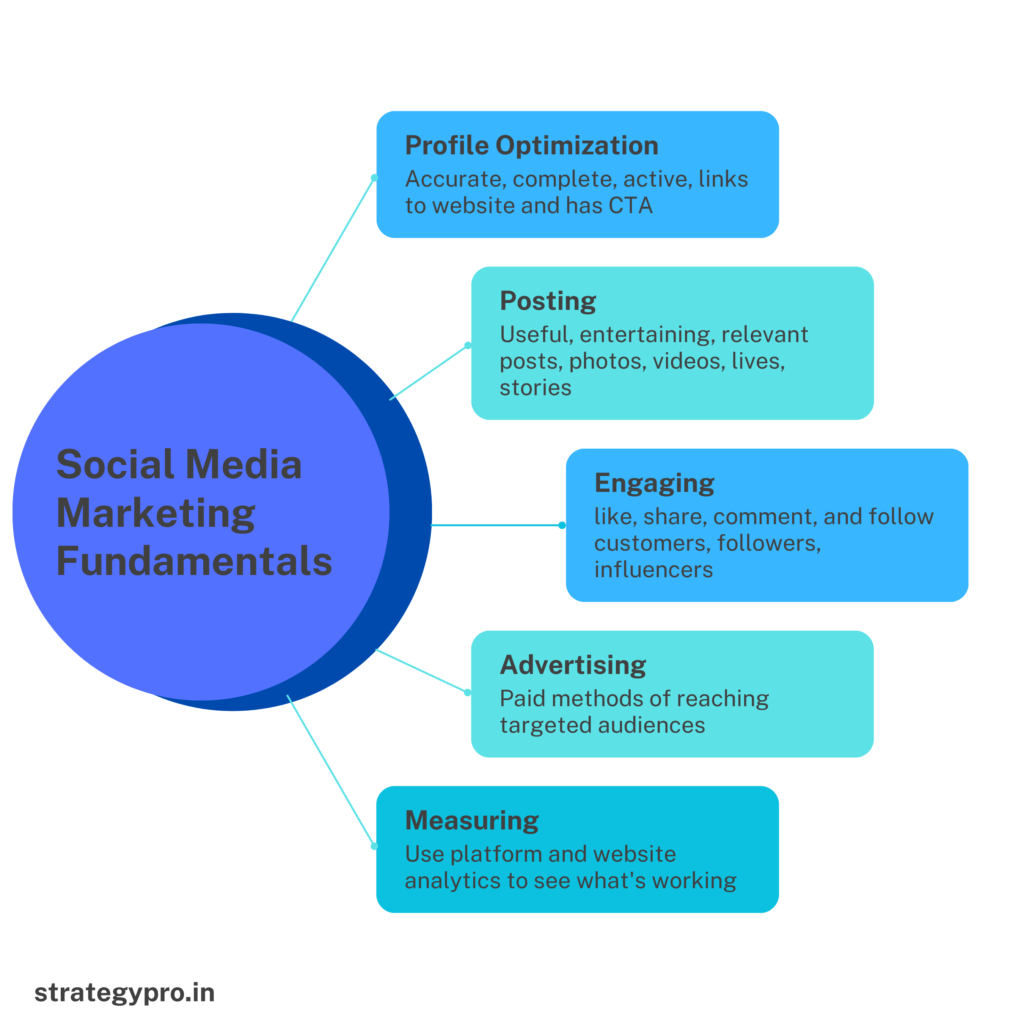
Best Social Media Platforms for Small Business Growth
- By admin
In the modern era of technology, social media has evolved into a crucial component of the marketing strategy for small businesses. With a plethora of platforms available, it can be overwhelming for entrepreneurs to decide which ones are best suited for their specific business needs. However, making the right choices in social media selection can significantly impact your business’s visibility, engagement, and ultimately, its success. In this guide, we’ll delve into the considerations and factors that small business owners should weigh when selecting the right social media platforms.

Understanding Your Audience:
Before diving into the world of social media, it’s crucial to have a deep understanding of your target audience. Different demographics favor different platforms, so knowing your audience’s preferences is key. Take into account elements like age, gender, location, interests, and online habits. Conducting market research or analyzing existing customer data can provide valuable insights into which platforms your audience is most active on.
Defining Your Goals:
Every business has unique goals and objectives, and your choice of social media platforms should align with these goals. Are you seeking to enhance brand recognition, increase website visits, generate leads, or improve sales? Different platforms offer various features and capabilities that cater to different business objectives. Clearly defining your goals will help narrow down your options and focus your efforts on platforms that can best support your objectives.
Assessing Platform Demographics and Features:
Each social media platform has its own demographics and features that appeal to different audiences and serve different purposes. Here’s a brief overview of some popular platforms and their key demographics:
Facebook:
With over 2.8 billion monthly active users, Facebook remains the largest social media platform globally. It appeals to a broad audience across all age groups, making it suitable for businesses targeting a wide demographic range. Facebook offers robust advertising options, business pages, and various engagement tools.
Instagram:
Popular among younger demographics, particularly millennials and Gen Z, Instagram is a visually-driven platform ideal for businesses with visually appealing products or services. It’s highly effective for brand storytelling, influencer collaborations, and showcasing products through high-quality imagery and videos.
Twitter:
Known for its real-time communication and news updates, Twitter is favored by a slightly older audience and is particularly effective for businesses aiming to engage in timely conversations, share industry insights, and provide customer support.
LinkedIn:
Positioned as a professional networking platform, LinkedIn caters to businesses targeting B2B audiences or professionals seeking industry-related content, job opportunities, and networking. It’s invaluable for establishing thought leadership, sharing industry insights, and connecting with potential partners or clients.
Pinterest:
A visual discovery platform, Pinterest appeals predominantly to female users and is ideal for businesses in industries such as fashion, food, home decor, and lifestyle. It’s highly effective for driving traffic to websites through visually appealing pins and DIY tutorials.
TikTok:
Known for its short-form video content and viral trends, TikTok has rapidly gained popularity among younger audiences. It offers a unique opportunity for businesses to showcase creativity, engage with users through challenges and trends, and reach a highly engaged audience.
Choosing the Right Platforms:
After evaluating the demographics, features, and capabilities of different social media platforms, it’s time to narrow down your choices based on your audience and business objectives. Below are some extra factors to assist you in making well-informed decisions:
Resource Allocation:
Take into account your available resources, such as time, budget, and personnel, when choosing social media platforms. It’s better to maintain a strong presence on a few platforms than to spread yourself too thin across multiple platforms.
Competitive Analysis:
Take a look at what social media platforms your competitors are using and how they’re utilizing them. While you shouldn’t blindly follow their lead, understanding their strategies can provide valuable insights into what’s working in your industry.
Experimentation and Iteration:
Don’t be afraid to experiment with different platforms and strategies to see what resonates best with your audience. Monitor analytics, track engagement metrics, and iterate your approach based on what’s yielding the best results.
Consistency and Authenticity:
Regardless of which platforms you choose, consistency and authenticity are key to building a strong online presence. Maintain a consistent brand voice, posting schedule, and messaging across all platforms, and prioritize genuine engagement with your audience.
In conclusion, selecting the right social media platforms for StrategyPro is pivotal for our business’s success. By carefully considering our audience, goals, platform demographics, and available resources, we can make informed decisions tailored to our specific needs. It’s essential to recognize that social media is a dynamic landscape, requiring adaptability and continuous evaluation. With a strategic approach, StrategyPro can harness the power of social media to expand our reach, engage with our audience, and achieve our business objectives effectively.
